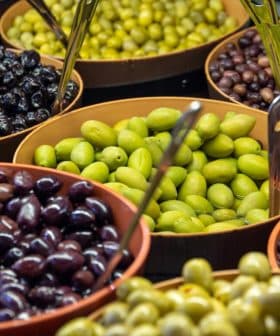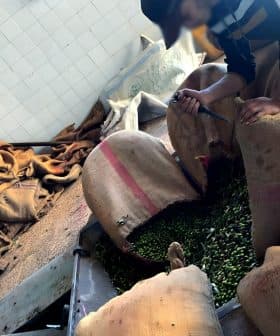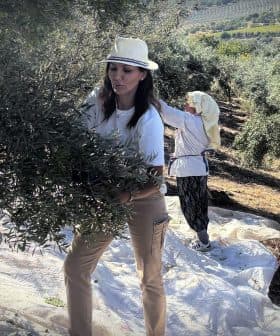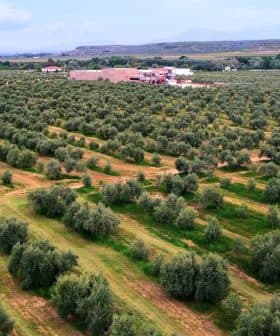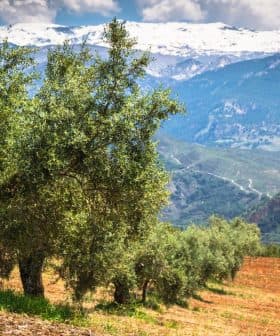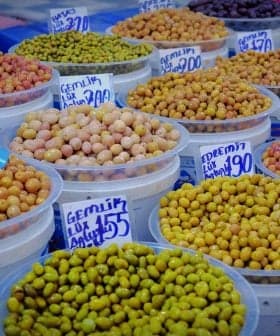Deadly Earthquakes Shake Turkey and Syria
As international rescuers travel to the war-ravaged region, witnesses describe freezing temperatures among razed cities and villages.
 AP Photo/Ghaith Alsayed
AP Photo/Ghaith Alsayed Two powerful earthquakes in southeastern Turkey and northern Syria have resulted in nearly 10,000 deaths and 35,000 injuries, with rescue efforts underway amid freezing temperatures and challenging conditions. The earthquakes have caused significant damage to buildings and infrastructure in the region, impacting the olive oil-producing areas and prompting an international rescue response.
This is a developing story. Check back for updates. (Updated Jan. 1, 1970 12:00)
Amid rolling hills dotted with olive trees, men, women and children are seen shivering among the wreckage of homes, buildings and vehicles.
Temperatures hover around freezing as intermittent rain and snow fall across much of southeastern Turkey and northern Syria in the aftermath of the region’s strongest earthquakes of the past 70 years.
Nearly 10,000 people have been killed and 35,000 injured after two powerful earthquakes shook the region on Monday. The first struck just after 4 a.m. local time, measuring 7.8 on the Richter scale. Then a second, 7.6 magnitude earthquake followed at about 12 p.m. local time.
See Also:Turkish Parliament Stops Coal Mining Operations in Olive GrovesThe earthquake and its aftershocks flattened more than 3,000 buildings in a 500-kilometer radius of its epicenter, located kilometers away from Gaziantep, Turkey. Tremors from the quake, the most powerful in the region since 1939, could be felt as far away as Egypt.
Turkish President Recep Tayyip Erdoğan said every institution in the world’s second-largest olive oil-producing nation would be mobilized in rescue and relief efforts.

Civil defense workers and residents search through the rubble of collapsed buildings in the town of Harem near the Turkish border, Idlib province, Syria, Monday, Feb. 6, 2023 (Ghaith Alsayed AP)
“We are also coordinating our work after the earthquake,” Erdoğan said, according to the state-run Anadolu Agency. “We hope that we will get through this disaster together as soon as possible and with the least damage, and we continue our work.”
The White Helmets, a civil defense unit operating in northwestern Syria, declared the region a “disaster zone,” according to Anadolu Agency, and called for urgent help “amid lack of capabilities and services, a shortage of shelters and stormy and freezing weather.”
The Syrian American Medical Society, a non-profit, said its hospitals in Aleppo “are overwhelmed with patients filling the hallways.”
Rescue teams from more than a dozen countries are en route to the war-ravaged region, home to an estimated 6 million refugees from the ongoing civil war in Syria.
So far, an international effort comprising 10,000 rescue workers has managed to pull 8,000 survivors from the rubble of collapsed buildings in Turkey. Figures from Syria are more difficult to verify.
However, villagers in rural Turkey have told The New York Times that they fear rescue workers will not arrive in time to save thousands of lives.
“It has been hours since the earthquake and so many people are searching for their loved ones,” Nuray Kabatas, a resident of Gaziantep with relatives in surrounding towns, told the paper. “The rescue operations are all in the cities, by the time they get to the villages it could be too late.”
Mustafa Tan, the chairman of the Turkish national olive and olive oil council, confirmed to Olive Oil Times the difficulties facing the country and its olive oil sector after the natural disaster.“
Many people have lost their lives as a result of the earthquakes in our country and in neighboring Syria,” he said. “This number is increasing even more. Our wish is that the injured will recover as soon as possible, and those trapped under the cave-in will be found alive.”
“We are sad as a family,” Tan added. “Thank God there are no casualties in our family. But, of course, there are important olive growers and businesses in the region. This is also some bad news. But we don’t have enough information yet.”
Southeastern Turkey and northern Syria are home to some of the countries’ most fruitful olive-growing regions.
Ample rainfalls and producers entering the ‘on-year’ in the olive trees’ natural alternate bearing cycle were attributed to bumper harvests in both countries in the 2022/23 crop year.
According to International Olive Council data, Syria produced 134,500 tons of olive oil, while Turkey enjoyed a record-high yield of 380,000 tons.
However, the windfalls enjoyed by the region will be short-lived. The United States Geological Survey estimated that up to $1 billion of damage has been done by earthquakes and their aftershocks.
Seismologists blame poor enforcement of local building codes for the immense rate of destruction in Turkey, while infrastructure in northeastern Syria has been extremely damaged by the decade-long conflict, increasing the risk to human life from an earthquake.
Share this article



